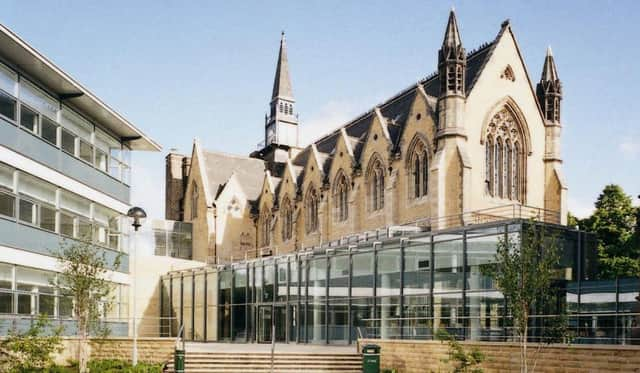Finding real-world answers to the real-world problems


It has been wonderful to see our campus come alive with new and returning students. As term progresses, colleagues are focusing their energies on ensuring that they receive a superb education.
Universities are a place of learning, discovery and a route to understanding and solving real world problems. Leeds University Business School is committed to having a positive impact on the economy, society and the planet. Our cutting-edge research is one of the ways we achieve this impact.
Real-world challenges require embracing multiple perspectives and drawing together knowledge from different disciplines. Using this approach, the Business School has been supporting the national response to Covid-19 by studying the impact of the virus in UK society and on the economy.
This includes partnering in major research programmes which explore the impact of the pandemic on areas including pre-school childcare, food waste behaviour, mental health provision, welfare support and flexible working.
Covid-19 has exposed a lack of resilience in many sectors.
While we are very aware of supply chain issues, another sector undergoing significant challenges due to labour shortage is early years childcare.
For millions of parents with young children, juggling work and childcare is a long-standing challenge and the Covid-19 pandemic has added further layers of complexity - nurseries have been forced to close and grandparents and other family members were unable to provide care due to pandemic restrictions.
Our researchers are looking at how Covid-19 has affected early years childcare settings and the ongoing challenges for providing a safe environment for staff and children.
These changes threaten to widen inequalities in society and the workplace, and our research will help us to understand these challenges.
Another fascinating research project is in food waste behaviour. During the first national lockdown of 2020, self-reported levels of food waste in the UK fell by 34% - the sharpest fall on record.
While self-reported levels of food waste did increase from this low point in the following months, careful food shopping and creative cooking contributed to this initial fall.
We are trying to better understand this change, and to use those insights to help citizens to waste less food when the pandemic ends. In partnership with two leading environmental organisations - WRAP and Zero Waste Scotland – this research examines food waste during and after lockdown periods and will develop interventions to support sustainable consumer behaviour.
Anyone who has spent time working from home because of Covid-19 may have particular interest in our research into what the offices of the future may look like. As national lockdown restrictions have eased across the UK, employers have been faced with reimagining the office for the post-Covid age.
This project will look at the experiences – positive and negative – of people who worked in socially-distanced offices during the pandemic and the impact it has had on behaviour, productivity and staff wellbeing.
We will publish guidance for employers about how to ensure that the return to the office – whether on a full-time, socially-distanced or hybrid basis – is as efficient as possible to support productivity and the national economic recovery.
Getting the economy moving again will be crucial to the UK’s post-Covid recovery, and high-growth entrepreneurial firms have a big part to play in that.
We have been working with entrepreneurs over the last eighteen months (undertaking interviews with over 150 high-growth firms), tracking the experiences and tactics of their firms as they move to the next phase and try to grow out of the pandemic.
This project includes the creation of an online hub with advice and guidance for entrepreneurs and policy makers on crisis management and resilience strategies.
Another project, led by the University of Salford, is looking at how the benefits system is responding to the Covid-19 pandemic. This will include whether people receiving benefits such as Universal Credit are getting the income and employment support they need.
The team have carried out an online survey of 8,000 new and existing benefit claimants, and in-depth interviews over a period of time with around 80 people.
Through these research projects, supported by funding from UK Research and Innovation (UKRI), we are doing our part to help the country learn positive lessons from Covid-19.
As we progress through the autumn term, we are focusing our energies on delivering innovate education and helping the nation and region build back better.